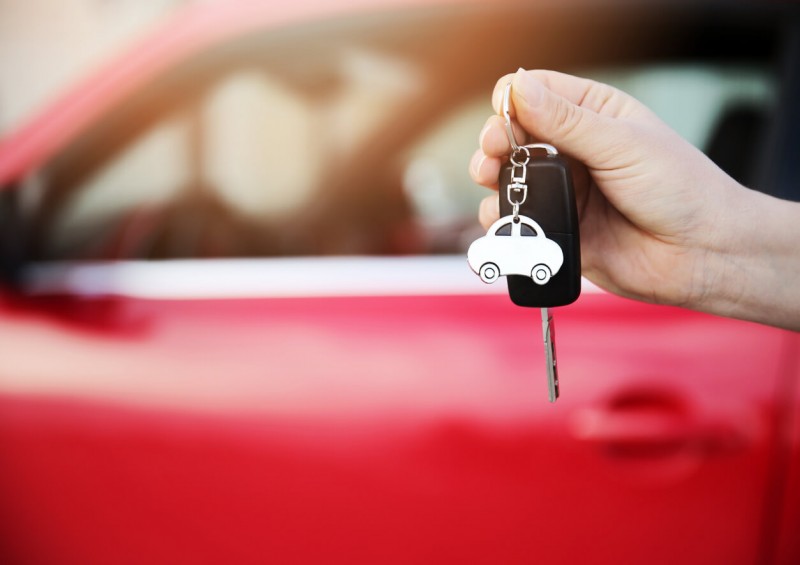Drivers Must Consider Depreciation Before Buying a New Car

Drivers have been warned that they should consider the pitfalls of a car’s depreciation in value and the potential impact it could have on car insurance, before rushing out to buy a new car this spring.
During March every year, many drivers in the UK will look at buying a new car when new number plates are made available for sale, but the comparison site, GoCompare, has stressed that motorists need to know just how significantly and quickly a brand new car depreciates in value the very second it rolls off the forecourt.
What is car depreciation?
Car depreciation is a term used to refer to how much less your car will be worth when selling your car compared to the purchase price you paid when you first bought it.
Car depreciation is usually associated with brand new cars that are costly to purchase but lose significant value the minute you buy and use them, but in general, the majority of vehicles will lose value as soon as the owner starts driving it.
How much does a car depreciate per year/per month?
GoCompare has reported that some car models can diminish in value by up to 35% within the first year (that’s nearly 3% per month) and up to a whopping 50% after 3 years. And although many new car buyers may be aware that this cosmic drop in value will hit them like a ton of bricks when they come to sell their car, not everyone is aware of how depreciation can affect car insurance.
How does car depreciation affect insurance?
For car insurance claims on a newly purchased car, you will only receive a payout for a car’s market value as at the date the accident occured, not for the price you initially purchased it for.
If you have a serious accident where your vehicle is declared a complete write-off and your car cover only pays what your vehicle was worth at the time of the accident, there will be a huge deficit between what you paid for the vehicle and what insurance payout you receive to replace it.
This is of particular concern if you have taken out a loan to purchase a new car (which, of course, many drivers do) and an accident happens within months or a few years of you buying the car.
You would then be left in an unenviable financial position where you would not have enough money to pay off your car loan in full, meaning you will have to continue paying off a loan for a car you no longer have!
However, do not despair as there is a specialist type of insurance that provides cover for this potentially costly issue called Guaranteed Asset Protection insurance (GAP insurance). Find out more about this type of protective car insurance by reading our related guide: GAP insurance: average costs and where to buy it.
Another way to avoid expensive car depreciation is by opting for car leasing. If you lease a car, you’ll get all the benefits of driving a new car without having to worry about depreciation and losing money when your contract ends.
Learn more: Car depreciation - Save money by leasing
What influences car depreciation?
A car’s drop in value and its rate of depreciation is heavily influenced by its:
- Age and mileage - the older your car is and the more miles you clock up, the less it is worth. Notably, if you keep mileage low on your vehicle, this can make your car worth more than newer cars as wear and tear on a car’s parts have a huge influence on its value.
- Make and model - when you buy a brand new car and it’s a brand spanking new never-manufactured-before model, it won’t be long at all before its reputation will be plastered all over the internet with negative or positive reviews. It goes without saying that if you happen to buy a newly manufactured car that ends up getting bad press, then this will depreciate your car’s ‘used’ or ‘second-hand’ value significantly. Conversely, if your car gets raving reviews for dependability and safety, then your car will retain more worth than less reputable makes and models.
- Modifications - blacked-out windows, noisy exhausts or Kermit-green coloured cars will only appeal to a particular audience and will therefore decrease your car’s saleability and worth.
- Fuel - diesel engines decrease in value more than petrol cars so try to buy petrol or better still, hybrid or pure electric cars for optimal value
- Maintenance - regular servicing is essential if you want to make sure your car’s value doesn’t hit rock bottom and keep receipts for new car parts, tyres, etc, to boost your resale value further.
If you’ve bought a new car on finance, then we strongly recommend you take out gap insurance (protect against depreciation). To find out more, check out our related guide on GAP insurance or take a look at our articles below.
